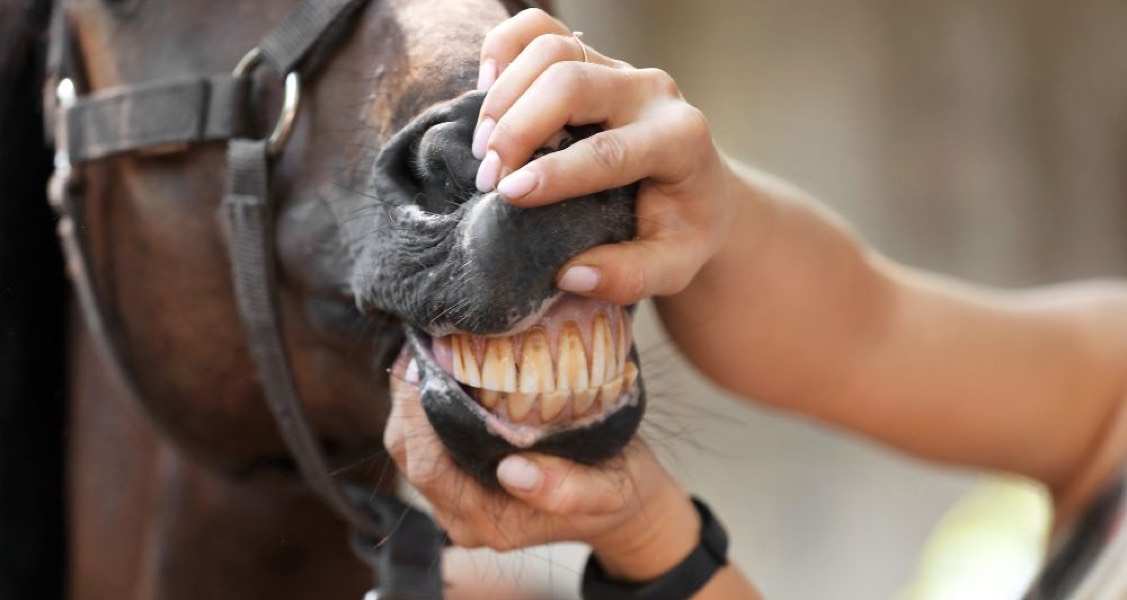Maintaining a horse’s dental health is crucial for their overall well-being. Just as humans need regular dental check-ups, so do our equine friends. Ignoring dental issues can lead to serious health problems, including difficulty feeding your horse. This article will help you identify common dental problems in horses and their signs so you can take swift action to keep your horse healthy and happy.
Sharp Enamel Points
Over time, the chewing motion of a horse can cause sharp enamel points to develop on their teeth. These points can create painful sores on the inside of the cheeks and tongue. You might notice your horse dropping food, showing discomfort while eating, or even avoiding the bit during rides. Regular dental check-ups can catch these sharp points early, allowing for timely floating of the teeth to prevent further pain.
Retained Baby Teeth
Young horses are expected to lose their baby teeth between two and a half and five years old. When these teeth are retained, it can lead to misalignment and overcrowding. Signs include difficulty chewing, bad breath, and unchewed food falling from the mouth. A veterinarian can remove these retained baby teeth to allow proper alignment of the adult teeth.
Wolf Teeth
Wolf teeth are small, vestigial premolars that appear in some horses and can interfere with the bit and begin to emerge as young as five months. They usually emerge in the upper jaw but can occasionally be found in the lower jaw. Signs that your horse might have problematic wolf teeth include head tossing, resistance to the bit, and general irritability during riding. A vet can remove these teeth if deemed harmful to your horse’s performance.
Dental Caries
Dental caries refers to cavities and tooth decay and can lead to pain and infection if left untreated. Look out for signs of excessive drooling, difficulty eating, and a foul smell from the mouth. Regular dental exams and a balanced diet low in water-soluble carbohydrates can help prevent caries.
Diastema
Diastema refers to gaps between the teeth where food can get trapped, leading to gum disease and decay. Horses with diastema often show signs of discomfort while eating, such as chewing slowly or packing food in their cheeks. Regular cleaning by a vet and changes in diet can help manage this condition, preventing more severe dental issues in the future.
Recognizing the signs of these common dental problems in horses is essential for every horse owner. Early detection and treatment can prevent pain and health complications, ensuring your horse stays healthy and content. If you notice any of these signs, consult your veterinarian for tailored advice.





